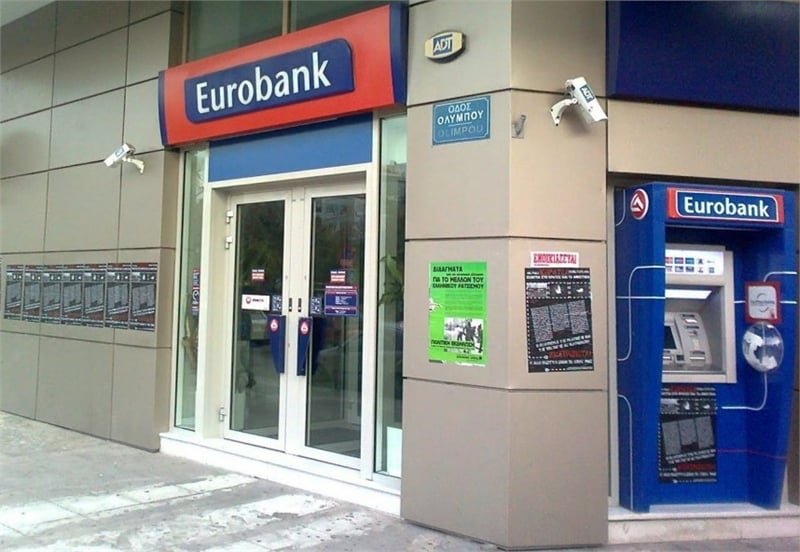Greek banks plan cautious acquisitions amid strong capital positions
Eurobank has acquired 1,334,684 of its own shares between August 11-14, according to an announcement released this week.
The bank reported that the average purchase price per share was €3.45, with a total cost of €4,606,846.31.
In an official statement, Eurobank Holdings, said the buyback follows the approval of its Share Repurchase Programme by the Annual General Meeting of Shareholders on April 30, 2025.
The programme was initiated earlier on May 7, 2025, and approved by the board of directors on April 30, 2025.
The shares were purchased on the Athens Stock Exchange (ATHEX) through Eurobank Equities Monoprosopi Anonymous Investment Services Company.
Following these acquisitions, Eurobank Holdings now holds a total of 32,836,468 own shares, representing 0.8931 per cent of its share capital.
Greek banks distribute interim dividends following robust profits
Meanwhile, Greek systemic banks are expected to finish 2025 with resilient net interest income, potentially reaching €8.5 billion, despite the decline in interest rates already implemented and those projected for the rest of the year.
This performance is primarily supported by net credit expansion, which has reached record levels across Europe and is expected to approach €14 billion this year.
The majority of loans target businesses and are partly supported by resources from the Recovery and Resilience Facility.
By contrast, mortgage lending remains largely stagnant as high property prices and low household incomes prevent many citizens from taking on home loans, despite lower interest rates.
Data from the European Central Bank show that in June, Greece recorded the second-highest annual credit expansion rate in the eurozone for loans to non-financial corporations at 16.6 per cent.
This strong credit growth largely offsets pressures on interest income.
However, €157 billion of deposits remain in savings and current accounts that yield minimal to zero returns.
These accounts belong to businesses, private individuals, and institutions, while only €47.4 billion are in term deposits, which offer some return.
Savings and current accounts make up 77 per cent of total deposits, with term deposits covering the remaining 23 per cent.
Overall, domestic deposits in the first half of 2025 reached approximately €214 billion.
The interest rate spread remains one of the highest in Europe, standing at 4.27 per cent in June.
This margin is a key factor in sustaining high bank profitability despite the gradual fall of eurozone interest rates.
Greek banks are forecasting strong profits for 2025 and significant growth in operations.
Even with expected reductions in key ECB rates, potentially reaching 1.50 per cent by year-end, prospects remain positive.
Many banks benefit from substantial fixed-rate loan portfolios under the current interest rate environment.
Executives of the systemic banks anticipate that total adjusted profits for 2025 will reach around €4.7 billion, boosted mainly by interest income and fees.
As long as interest income remains resilient, prospects for 2025 appear more favourable compared to the strong results of 2024.
Robust earnings are leading banks to distribute substantial dividends to shareholders.
Following European practices, all four systemic banks (Piraeus, Eurobank, National Bank of Greece, and Alpha Bank) have announced interim dividends.
The distributions range from 10 per cent to 20 per cent of net profits, with dividend yields between 1.2 per cent and 2.4 per cent.
National Bank of Greece offers the highest distribution, both in absolute terms (€260 million) and as a percentage of profits (20 per cent), while Piraeus Bank remains more conservative with 10 per cent of profits.
These decisions signal a return to normality and confidence in the stability of the banking system, delivering value to shareholders.
High share prices have led some banks to pause share buybacks temporarily, with plans to resume them later.
National Bank has left open the possibility of a final distribution, potentially exceeding 60 per cent of total profits.
Banks’ capital positions are strong, reflecting successful stress tests conducted earlier this month.
With abundant capital, banks are planning their next steps and seeking to diversify revenue sources.
Regarding mergers and acquisitions, National Bank continues its search, focusing on the insurance sector, though it did not provide specific details during its half-year results presentation.
Piraeus Bank prioritises completing its acquisition of Ethniki Insurance and the so-called Danish compromise, which aims to stabilise its capital at higher levels.
Alpha Bank has stated that any potential acquisition must be meaningful, meeting strict investment criteria, yielding over 15 per cent return, contributing positively to capital and earnings per share within two to three years, and not affecting its dividend policy.






Click here to change your cookie preferences